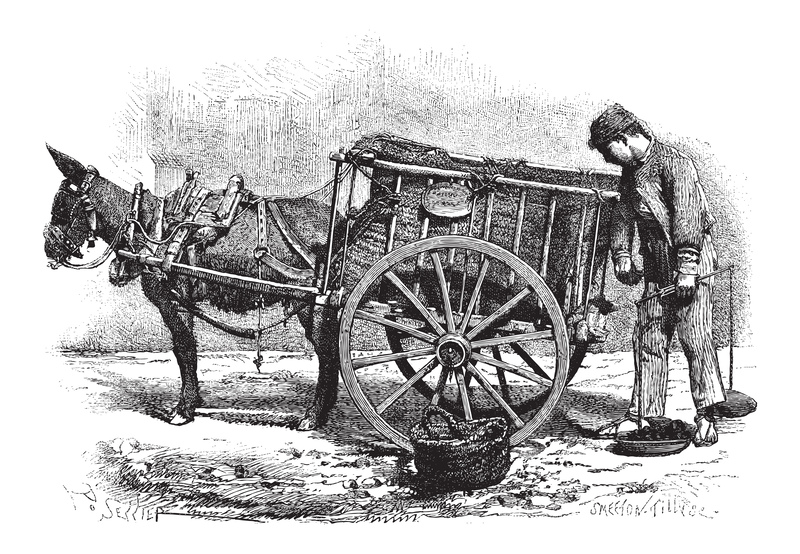What Happens When Your Trash Bin Isn't Emptied
In our daily lives, trash management may not seem like a predominant concern, yet it plays a critical role in maintaining hygiene, safety, and environmental health. But have you ever pondered the consequences when your trash bin isn't emptied? Not dealing with waste effectively can lead to a cascade of issues that extend beyond personal inconvenience. Here, we delve into the unpleasant realities and potential hazards associated with neglected waste disposal.
The Immediate Impact
One of the first things you notice when your trash can isn't emptied is the unpleasant odor. This lingering smell can quickly permeate your living space, making it uncomfortable and unattractive. The odors are typically caused by the decomposition of organic waste, which begins almost immediately after being thrown away.
Health Hazards
- Bacterial Growth: The warm, moist environment of an overflowing trash bin is a breeding ground for bacteria and other pathogens. These microorganisms can lead to unpleasant health effects such as skin irritations, gastrointestinal issues, and respiratory infections.
- Pest Infestation: Uncollected trash serves as a magnet for pests, such as rodents, flies, and cockroaches, all of which thrive in such conditions. These pests not only contribute to additional health risks but also cause contamination by spreading germs throughout your home.
- Presence of Mold: When moisture accumulates in a trash bin, there's a likelihood of mold growth. Exposure to mold can trigger allergies and asthma attacks, particularly in vulnerable individuals.

Environmental Concerns
When trash management is neglected, it presents not just personal problems, but also contributes to larger environmental issues. A build-up of waste can have far-reaching impacts on our surroundings.
Negative Environmental Consequences
- Pollution: Overflowing trash can lead to waste dispersal into local ecosystems, causing soil and water pollution. This not only affects wildlife but can also have repercussions on human health through the contamination of natural resources.
- Greenhouse Gas Emissions: The decomposition of organic waste in landfills results in the release of methane, a potent greenhouse gas. Unmanaged waste accelerates this process, accelerating climate change related issues.
- Visual Degradation: Overfilled trash bins reduce the aesthetic appeal of neighborhood environments, leading to decreased property values and a potential increase in crime rates due to perceived neglect.
Economic Repercussions
Long-term neglect in waste management can also incur financial costs.
Increased Sanitation Costs
- Cost of professional cleaning services rises due to the requirement for special cleaning and pest removal treatments.
- Communities may face increased taxes to budget for enhanced waste management solutions to deal with escalating waste levels.
Steps to Prevent Overflowing Trash Bins
Preventing your trash bins from overflowing requires proactive measures to ensure regular and efficient waste disposal:
Practical Waste Management Solutions
- Regular Collection: Ensure trash is collected regularly based on your local schedule to prevent an overflow.
- Reduce, Reuse, Recycle: Adopt the principles of reducing waste generation, reusing items where possible, and recycling appropriate materials to lighten the load on your trash bins.
- Composting: Composting organic waste can significantly reduce the volume of trash, and as a bonus, it enriches your garden soil.
- Appropriate Bin Sizing: Use trash bins that are well-suited to your requirements. Households generating larger amounts of waste may need larger or additional bins.

The Role of Community and Technology
To address waste management challenges, a collective effort is crucial. Communities can benefit from:
- Public Awareness Campaigns: Educate residents about the importance of regular waste disposal and recycling practices to encourage behavioral changes.
- Smarter Solutions: Integrating technology in waste management, such as smart bins with sensors to alert when full, can optimize collection schedules and reduce overflow instances.
Conclusion
In conclusion, the ramifications of a neglected trash bin extend well beyond a simple inconvenience. From triggering health concerns to impacting the environment and economy, the stakes are high. By adopting diligent waste disposal practices and encouraging community involvement, we can mitigate these risks and contribute to a healthier, more sustainable environment. It's not just a personal responsibility but a collective one--so let's roll up our sleeves and keep our spaces clean for the well-being of all.